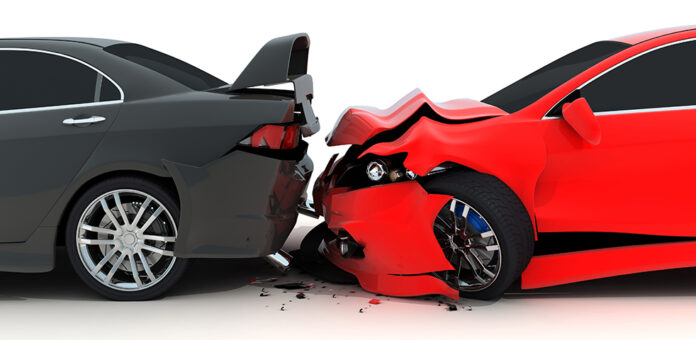
Table of Contents
There seems like a lot to talk about when it comes to car insurance; where to start? Let’s firstly look at why we have auto coverage and how it works. We have car insurance for the purposes of financially protecting ourselves and our cars. It’s an understatement to say that vehicles are expensive to fix. At the same time, paying for damages that we cause to other drivers on the road is a legal obligation in several states. The main thing is that car insurance prevents us from having to shell out a lot of money –some of which can break the bank. Driving without car insurance can result in some serious legal penalties, including fines, license suspension, and even jail time if it becomes a regular bad habit. So, to avoid those bad habits, here is everything you need to know about vehicle coverage.
What Car Insurance is For
Let’s look at car insurance when it comes to certain damages often encountered in vehicle accidents. It is composed of several types of coverage with their own specialization. Several insurers offer the ability to customize these coverages to fit any budget, as long as they satisfy the required car insurance. These auto coverages are:
- General liability coverage – When people refer to auto coverage, they are often referring to the general liability coverage portion. Liability coverage covers damage to another driver’s vehicle and injuries to them that you cause in an accident that was specifically your fault. Nearly every state has a certain minimum requirement for how much liability auto coverage you should carry. Other areas of coverage that general liability provides are lawsuits and following medical treatments after an accident. Note that general liability covers injuries and damages that you cause to another driver and not yourself and is required when buying vehicle coverage.
- Collision coverage – General liability on its own is considered basic car insurance. On the other hand, there is also a full one. Collision coverage is one of two coverages that make this up. This coverage provides protection to your own vehicle in an accident regardless of fault. This also is the case if you hit something like a guardrail or tree. Full one usually has extensive coverage such as this.

- Comprehensive coverage – This is the second of the two coverages that make up full vehicle coverage. Comprehensive coverage is there for all the damages that the owner of the car isn’t present for, usually when it’s parked. A vehicle can be stolen, vandalized, or damaged by falling objects due to high winds. You can’t help these damages,, so you shouldn’t be on the hook for them.
- Personal injury protection (PIP) coverage – Here is the auto coverage that insures injuries to yourself and passengers in your car regardless of fault. This may also go by the name of medical payments insurance since that is precisely what it is for.
- Uninsured motorist coverage – If you were hit by a driver who doesn’t carry enough car insurance or not at all, then this coverage will provide the insurance that they can’t. This coverage is actually required in some states, so be sure to check your requirements. Drivers with vehicles that are worth a lot are the prime customers for this coverage.
What Car Insurance Doesn’t Cover
What car insurance covers is extremely circumstantial. Claims are filed when there has usually been an accident or damage done by another party. Naturally, the wear and tear of a car isn’t covered by insurance, and neither is regular maintenance. Insurance policies also list certain drivers, so an unlisted driver wouldn’t be covered unless there is a mention of them. If you would like to learn more about what you car insurance does here, go to this website to find more info.
Car Insurance Premiums And Deductibles
When you first hear about insurance you see words like “premiums” and “deductibles” being thrown around a lot. These seemingly complex terms actually have really simply meanings:
- Premiums/Rates – Premiums is a really formal way of saying how much you pay for car insurance each month. They also may go by “rates.” Car insurance is based on monthly premiums for about a year until renewal.
- Deductibles – Insurance deductibles are another thing that you as the policyholder pay for. This is the amount you pay when you file a claim after a car accident. Like your insurance coverage, the amount is customizable. Several people set their deductibles anywhere from $500 to $1,000.
It also should be noted that premiums are directly inverse to deductibles. The higher the deductible you pay in the event of a claim, the less your premiums will be. Since deductibles are customizable, this can be taken advantage of –just be sure that you can afford the deductible in the event you need to use your insurance policy.
What Car Insurance Costs

Car coverage is actually an incredibly personal thing. That’s why averages are so different across the United States. Auto coverage costs vary on factors that depend on both the driver and the car:
- Driver factors – Several personal factors are taken into account by the insurance company including age, driving history, zipcode of residence, sex (in some states), and even marital status. These are all factors used to assess how much of a risk you would be for the insurance to insure. Young drivers are typically new to being behind the wheel, zip codes can tell crime rates, women pay a little bit less for car insurance than men, and married couples pay less than singles. That’s why new drivers often go on their parents’ policy.
- Car factors – Naturally, the kind of car you are insuring will affect your premiums. A luxury vehicle would get higher rates than a standard one would, vehicles used for work purposes require specialized coverage, and older vehicles are less to insure than new ones.
We can tell you that there is a national average for auto coverage, and it’s around $136 per month –that adds up to about $1,630 annually. Of course, every insurance company prices their policies differently so it helps to shop around with both the national and local providers. There are independent insurance agencies like G&G Independent Insurance who can do the shopping for you. Just visit their website and request for a quote. It also helps to find what the average driver pays for coverage in your area.
















